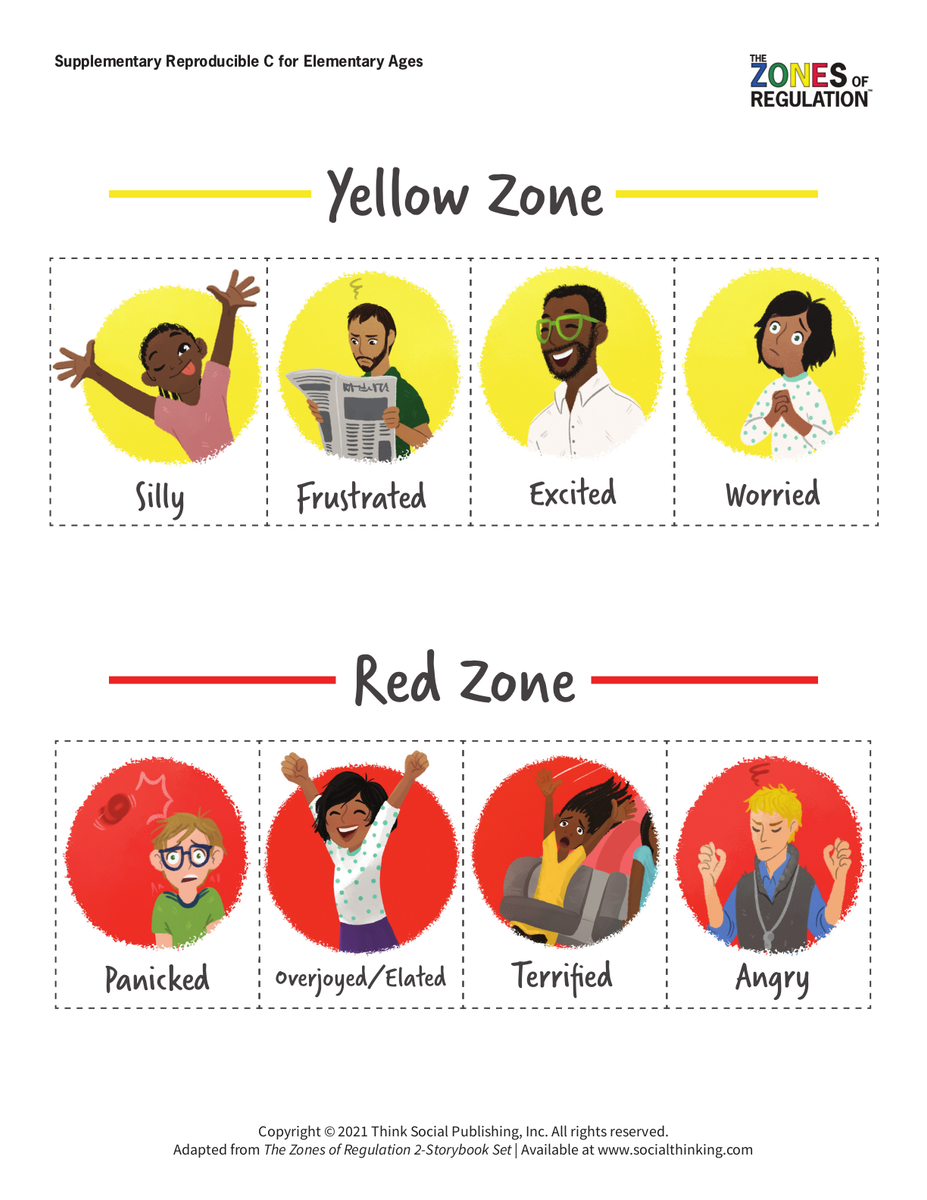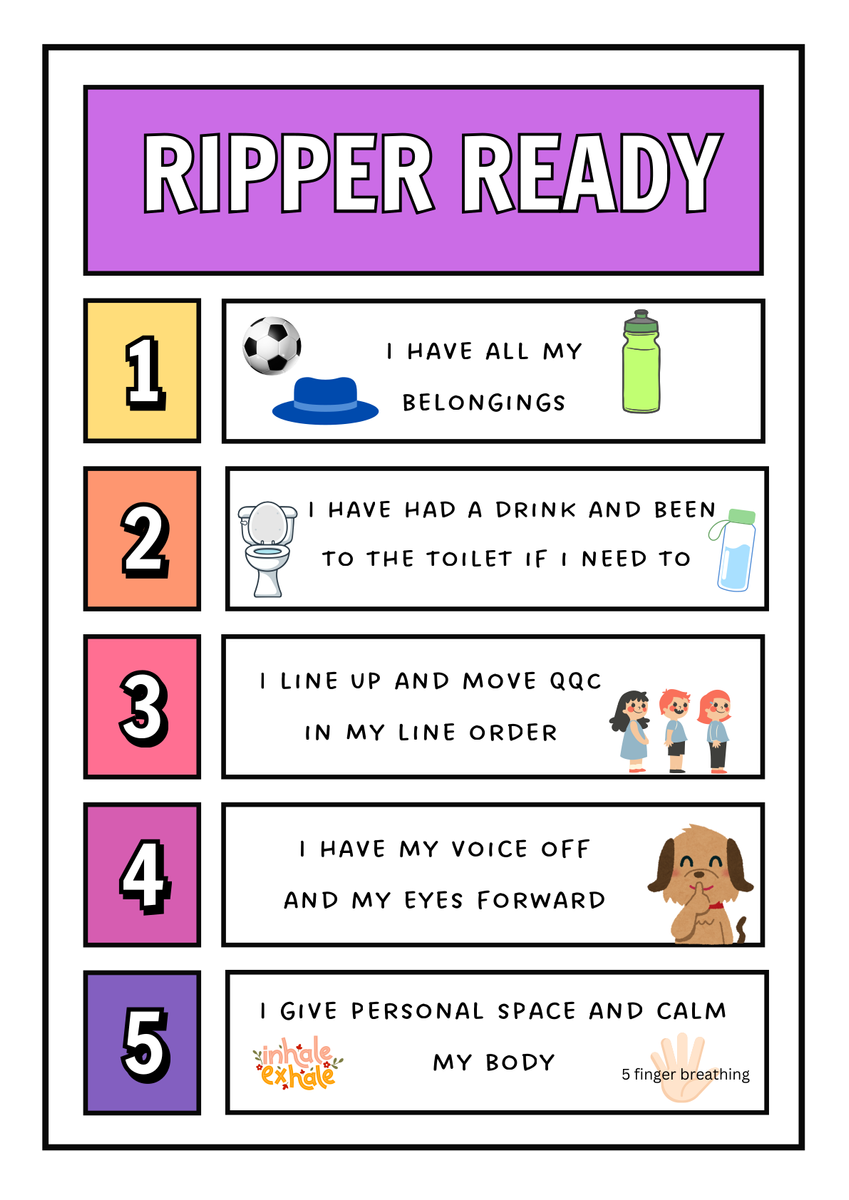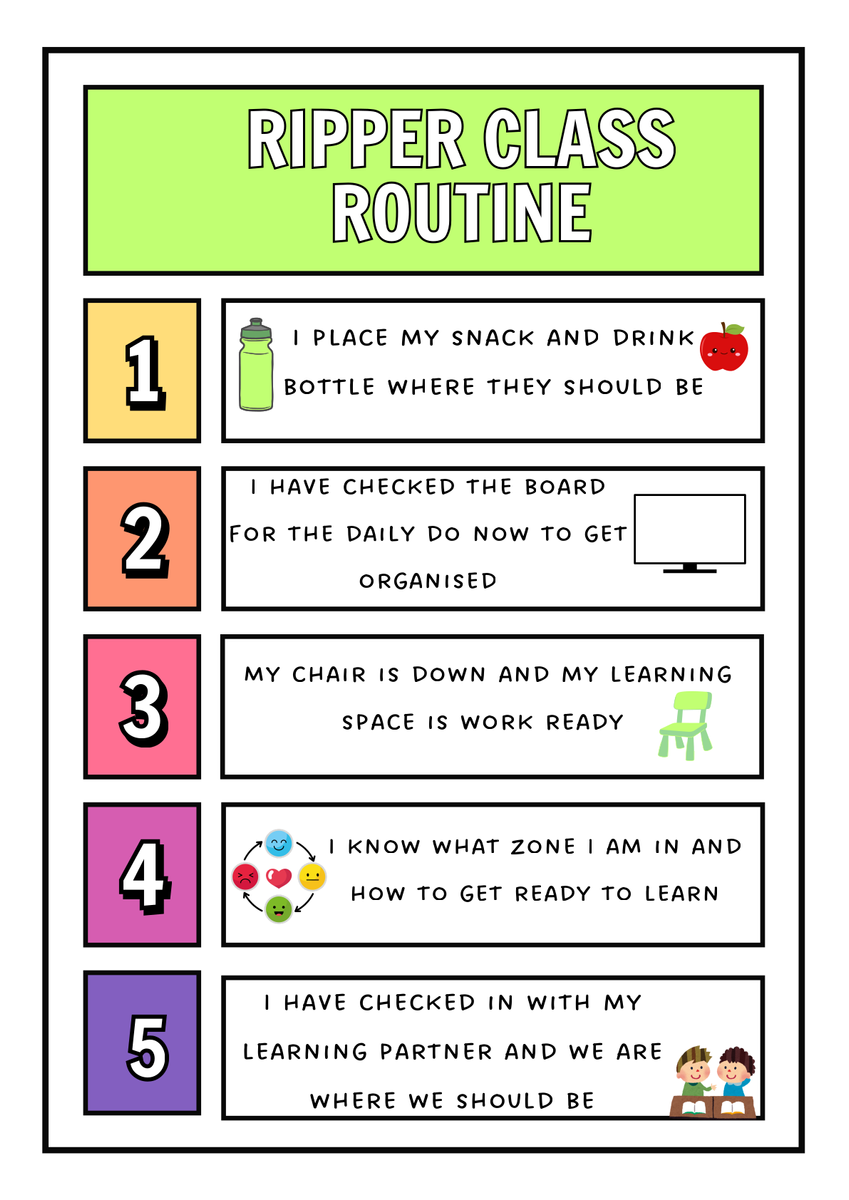Mental Health & Wellbeing Students/Parents/Carers Support
Articles, Videos & Resources

Mental Health & Wellbeing Students/Parents/Carers Support
Articles, Videos & Resources


At Ripponlea Primary School, we believe that learning to manage emotions is just as important as learning to read, write, and solve problems. That’s why we are proud to be entering our second year of delivering the Zones of Regulation curriculum across the school—and this term, we are launching dedicated Zones lessons for all students from Foundation to Year 6.
The Zones of Regulation is an internationally recognised social-emotional learning framework that helps students identify their emotions, understand how those emotions affect their behaviour, and develop appropriate strategies to manage them.
The Zones of Regulation groups emotions into four easy-to-understand colour zones:
Students learn that all emotions are valid and that the goal isn't to avoid certain zones, but to recognise them and choose the right tools to help return to a zone that supports their learning and wellbeing—especially the Green Zone.
Emotional regulation is a critical life skill. When students can name their emotions and understand what they are feeling, they are better equipped to:
Just like we teach strategies for solving math problems or decoding tricky words, we also teach strategies to help manage big feelings. These might include mindful breathing, taking a break, using movement, talking to a trusted adult, or practising positive self-talk.
Throughout the term, students will engage in interactive lessons tailored to their age and developmental level. These lessons will help them:
We also integrate the Zones language across the school, so it becomes part of the everyday conversation between students and teachers—helping students make connections between their emotions, their behaviour, and their learning.
You can support your child by using Zones language at home. Some examples include:
Helping children become emotionally aware and resilient is a team effort. With consistent support from home and school, students can build the skills they need to thrive in all areas of life.
Thank you for being a part of our journey as we support our learners in becoming confident, self-aware, and emotionally intelligent individuals.






At Ripponlea Primary School, we are committed to nurturing resilient, independent, and self-managed learners. Our approach is grounded in the belief that students thrive when supported by clear, consistent routines that promote responsibility, organisation, and emotional readiness.
This term, we are proud to introduce and embed our Ripper Ready and Ripper Class Routines across the school. These school-wide practices are designed to support every child in transitioning smoothly between learning environments and starting each day ready to engage and succeed.
Routines are the foundation of success, both at school and in life.
They:
When children understand what’s expected of them and can independently prepare for learning, they are more focused, confident, and capable.
Our two routines are displayed visually in classrooms and practised daily:
Ripper Ready Routine – For Transitioning Into Learning Spaces
Ripper Class Routine – For Being Ready to Learn
These routines link directly to our School-Wide Positive Behaviour Support (SWPBS) framework and wellbeing goals, helping all students feel safe, respected, and in control of their learning.




“We have developed school-wide routines for transitioning from inside to outside and for ready-to-learn classrooms because we believe these help students take ownership of their learning journey. These structures build the independence and organisation students need to succeed at school and beyond.”— Natalie Rose, Principal
By teaching and reinforcing these routines every day, Ripponlea is creating a calm and productive learning environment where every student is set up for success.
We invite families to discuss these routines at home and encourage their children to practise being Ripper Ready in all aspects of their lives.